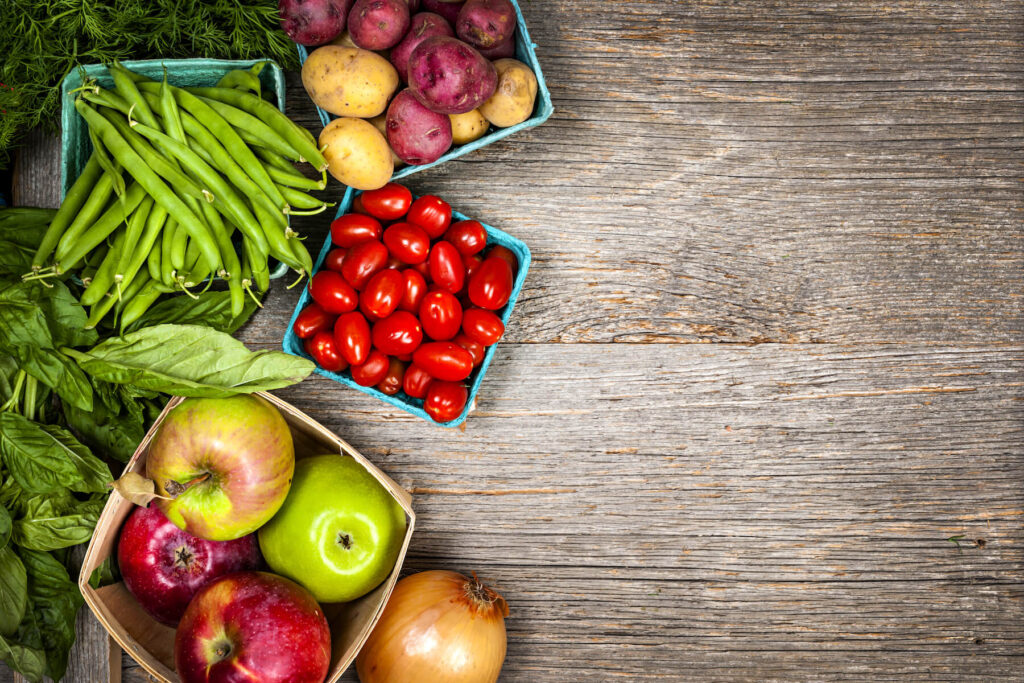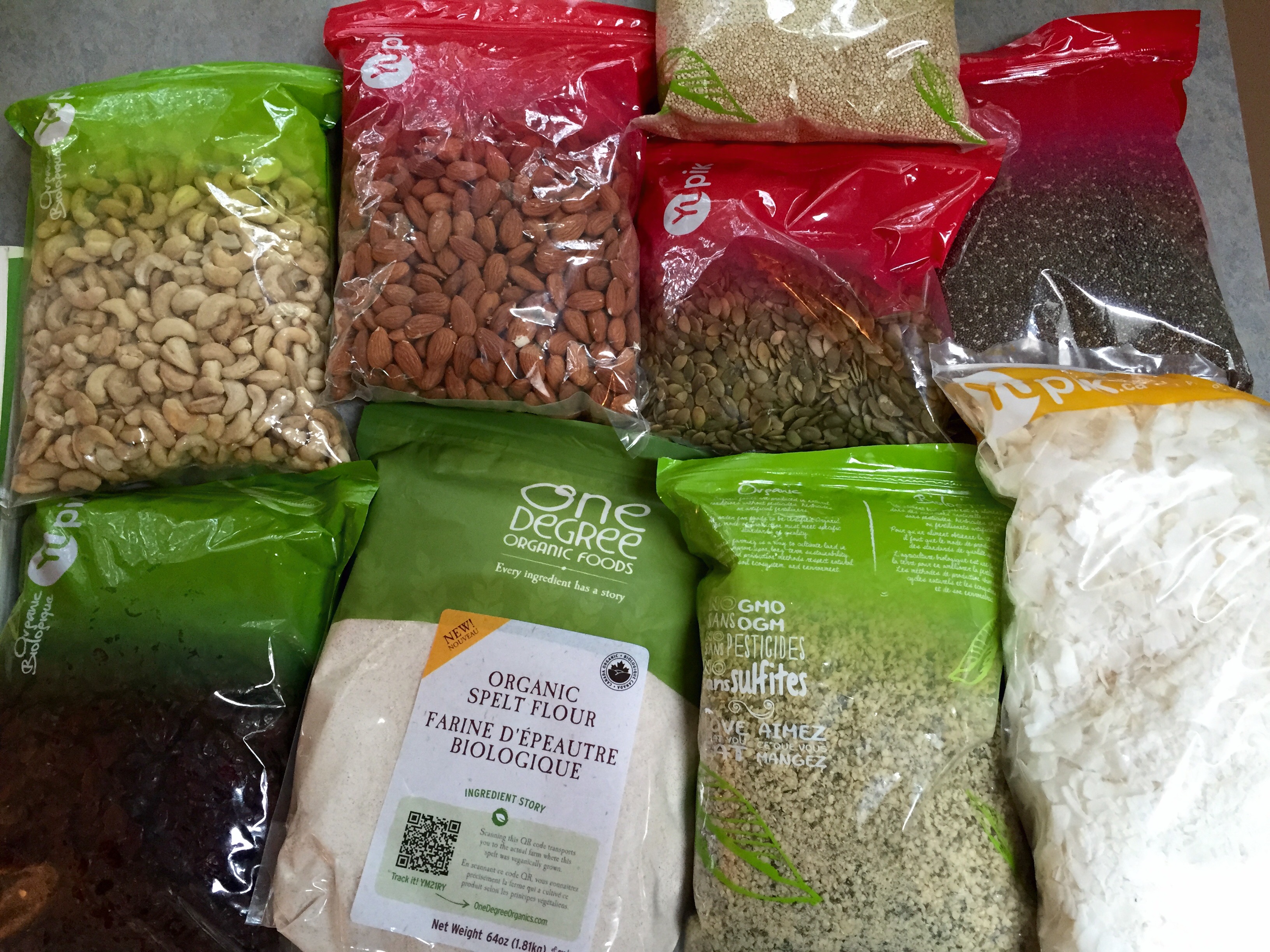
When it comes to food, how you buy, what you buy and when you buy are all in your power. I use that power to try and buy sustainable foods: foods that provide me with nourishment, support local producers and make my footprint on this earth a little smaller.
I am not declaring myself a saint by any means, what I am saying is that I care. I want to do my part so my kids have a nice place to live when they grow up.
The other day something happened to me that sparked the motivation to write this post…
I recently started doing all my grocery shopping online – yup! Other than a few trips to the produce store up the street from me.
The other day I was unwrapping my bulk food order from Yu-Pik (a great online bulk food supplier) when I noticed my bag of organic hemp hearts came all the way from China! WTF??? – I thought that hemp hearts came from Manitoba! (They do. Manitoba Harvest is the world’s largest hemp food manufacturer. )

I felt really bad about buying a product all the way from China when I could have been supporting a Canadian product and not having it shipped across the globe. This event has had me thinking about our food and how sustainable I really am.
As you all know, I’m not a big fan of rules, so I’ve come up with some practical guidelines to help you make more sustainable food choices.
My Guidelines are:
Be kind to yourself
Be kind to your neighbour.
Be kind to the earth.
Be Kind to Yourself
Think about what you’re putting into your body. This simple act of self-kindness will help you make choices like buying organic foods and avoiding pre-packaged or over-processed foods. It also means choosing fresh over frozen of canned whenever possible.
Be Kind to your Neighbour
Buying local food products isn’t just about your local farmers’ market. If you think about by hemp hearts example from above, it also means choosing food sources from your own country or hemisphere. In the winter, you’re far better off buying oranges from California than grapes from Chile.
There are some big benefits from doing this:
- Local food tastes better. It hasn’t had to travel as far or be stored in a fridge forever.
- Local products support local economies.
- Local foods reduce the environmental impacts from transporting goods over long distances.
Be Kind to the Earth
Your food choices can have a big impact on the earth – both good and bad. Being kind to the earth is about choosing foods that are organic, non-GMO (Genetically Modified Organisms) and produced as close to you as possible.
Why does this matter? Well, here’s a couple of reasons:
- Organic, non-GMO foods aren’t genetically modified nor are they grown with the use of harsh chemicals and pesticides. Which means you are eating real, whole foods the way nature intended it to be.
- Organic, non-GMO foods help protect biodiversity, soil and water quality over the long-term. This means we can feed our children’s children as well as ourselves.
So what can you do as a consumer?
- Buy local when you can. Just check on the packaging or produce label to see where it came from – every food product will tell you where it’s from.
- In the Summer and Fall (In the Northern Hemisphere) shop at Farmers markets and find out where your food is coming from.
- Eat less meat and when you do buy meat, buy it from your local butcher or a trusted meat distributer like Two Rivers Meats, a company that is helping consumers connect with local farmers. http://www.tworiversmeats.ca
- Don’t waste food! That food took energy to grow, energy to get to the store and your money to buy so don’t just throw it out!
- Buy Organic, non-GMO products. Again look at the label for things like “Non-GMO project”
- Have the power to say No! – Do you really need to eat grapes in the middle of Winter? Choose a healthy fruit source from closer to home like apples or oranges.
Yes, this can cost a bit more money at times, and sometimes it’s just not possible – I get that. What I believe though, is that if you follow these guidelines, you’ll make smarter, healthier, more sustainable food choices.
xoxo
Rebecca
